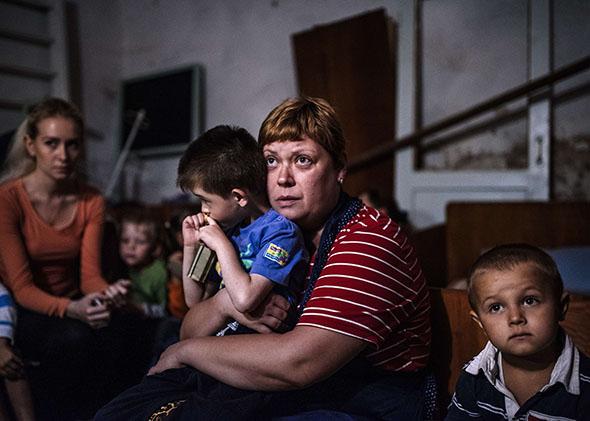LONDON—Imagine that you are a mother of a very poor family in Udaipur, India, and that you want to have your children immunized. But now imagine—as the economist Esther Duflo once demanded of a TED audience—that because you are very poor, you have an infinite number of small things to do, from fetching water to cooking food from scratch to running a small shop. In order to get your child immunized, you have to walk several kilometers to a health center that turns out to be closed. Would you bother to return again? Probably not.
As Duflo’s research discovered, the very poor in this sense aren’t that different from people in rich countries. If immunization is convenient, then we get our kids immunized. If water comes clean out of the tap, then we drink clean water. But if immunization were very inconvenient—if it required a day-long walk, more than once—or if all water had to be cleaned with chlorination tablets, then we too might cut corners and forget. That’s why the children of the very poor are more likely to fall ill than children in wealthy countries.
That’s also why there is no need for a complex moral or economic explanation for the low immunization rates in very poor countries: It’s not that poor people don’t understand why immunization is important, or that they don’t care. It is just that they can’t always make heroic efforts to do it. In the developed world, we have come to take all kinds of things for granted—clean water, sewage systems, public vaccination programs—and we have forgotten that in very poor countries, everybody has to live without them, and not everybody can compensate.
Among people who think about poverty, Duflo’s work is well known. But reading of recent events in Ukraine, Libya, Burma, and Tunisia, I wonder if there isn’t a similar book to be written about democratic politics, since those of us who live in functioning democracies take a good deal for granted, too. Our election systems are already in place; our constitutions were designed many decades or centuries ago. So were our political parties, courts, and laws on speech, assembly, and the press. We don’t have to make them up ourselves or build them from whole cloth. Most of us don’t even think about the mechanics of our political system at all. We just show up to vote occasionally, or perhaps don’t even bother.
Nevertheless, when we watch political systems fail in other countries, we feel superior. Just as the poor are often thought to be lazy or feckless, so those who live in failed states are often thought to be immoral or culturally inferior. “Arabs can’t do democracy,” we say, as if that were a statement that will be true for all time, or “Ukrainians just aren’t up to it.”
But imagine that you are the mother of a Ukrainian family in Kiev. If you would prefer to live in an uncorrupt state with the rule of law, it isn’t enough just to show up and vote. You should also work as a volunteer for an anti-corruption NGO, be actively involved in civic education projects, donate money to candidates who aren’t funded by oligarchs—and all of this while commuting to work every day on an ancient bus system, working in an office where they keep the heating low to save money, and trying to live on a salary that’s worth less every month.
If you are a mother in a Libyan family, you face similar problems. A Libyan who would like to live in a law-abiding society needs to cope with the fact that there are no legitimate property titles in his country—Muammar Qaddafi deliberately destroyed them, along with much else. Unless the property issue is fixed, peace will be difficult to achieve and economic growth impossible. But people who are coping with marauding militias don’t think about property law, even though it’s an issue that should be at the center of political and public attention. It’s not because Libyans don’t know that it’s a problem, it’s just that they don’t have time.
So next time you read about a dysfunctional state and shake your head at the mess, remember, if you are reading this in an established democracy, how lucky you are: Americans and Europeans don’t have to write their constitutions from scratch in order to elect a government, or change their entire court system if they want justice—but Libyans and Ukrainians do. Ask yourself if you would find that easy.
